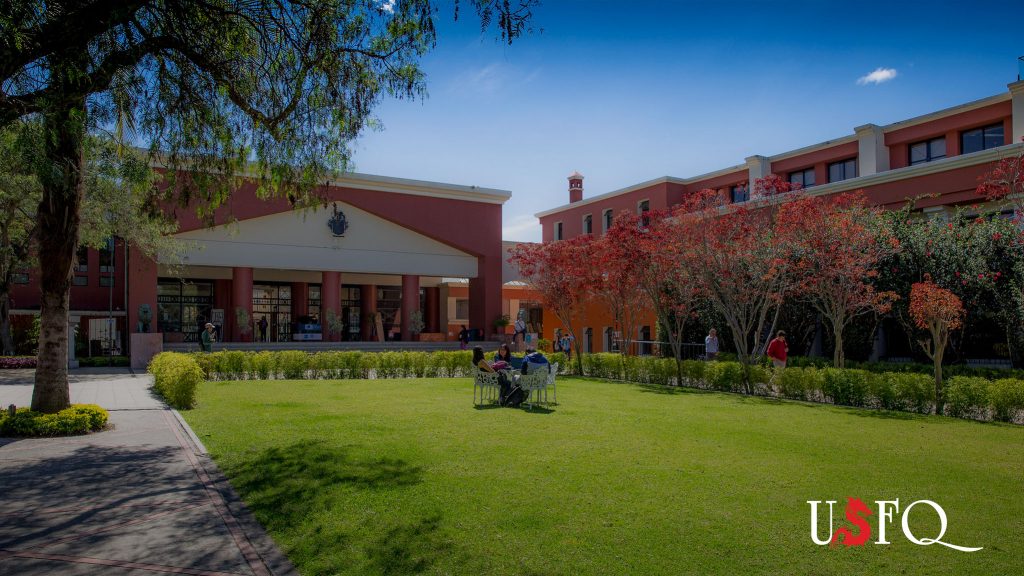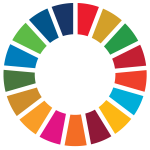Esta web utiliza cookies para que podamos ofrecerte la mejor experiencia de usuario posible. La información de las cookies se almacena en tu navegador y realiza funciones tales como reconocerte cuando vuelves a nuestra web o ayudar a nuestro equipo a comprender qué secciones de la web encuentras más interesantes y útiles.
Implementation of processes for the execution of community outreach projects
Description
Institution
Universidad San Francisco de Quito USFQ

Organizations/areas of the university involved
Community Outreach Department
Country
Ecuador
Process of surveying, mapping, organizing, monitoring and disseminating community outreach projects aligned with the SDGs and carried out at the Universidad San Francisco de Quito USFQ, Ecuador.
Universidad San Francisco de Quito USFQ’s Community Outreach Department implemented a process to map, organize, monitor and disseminate community outreach projects led by university professors with the participation of students and external partners. These projects seek to contribute to the SDGs through addressing the problems or needs of society.
We began with the creation of a guide for outreach processes detailing what an outreach project is, how it is structured, how it is aligned with the SDGs, how it is monitored and evaluated, etc.
A digital information system “Community Outreach Platform” was built to standardize project information. Information was gathered on the outreach projects that were being carried out and was entered into the new platform.
The next step was to inform professors about the new process guide, the platform and the process for entering new projects. Workshops and training sessions were held for this purpose.
Outreach projects were disseminated through different media: microsites were created for each project, and social networks were used to disseminate the results of outreach projects and communicate the activities to be carried out to attract the community. Also, promotional videos were made on projects emphasizing their alignment with at least one SDG. Events were organized around the SDGs with the aim of communicating information about the projects to encourage community participation and create new projects. Finally, the monographic series “Spheres” was created, which publishes the results of projects aligned with the SDGs; the recent edition contains projects that contribute to SDGs 3 and 4.
The next steps are to continue with the activities of approval, monitoring and evaluation of projects to obtain information on their results; dissemination of the projects to motivate more professors, students and external partners to participate and learn about the work being done around the SDGs; and continue with the publication of the monographic series Spheres, with projects aligned to the other SDGs, to disseminate the work methodologies and results of the projects and allow them to be transferred and replicated in other sites.
Results and impact measured or expected
The implementation of these processes allowed professors to plan their projects considering the activities and objectives to be met, in order to solve a societal problem, aligned to an SDG. Likewise, they allowed students to put knowledge acquired in the classroom into real-world practice.
The dissemination of the projects through various events and the publication of Spheres motivated professors and students to continue with the projects for a greater impact.
During 2019-2020, 82 leaders entered 108 projects aligned to 12 SDGs into the platform, in which 54 academic programs, 418 professors and staff and 1,199 students participated with over 140,000 participation hours. The projects benefited 160,000 people in 13 Ecuadorian provinces, with the help of 219 partners.
The projects were disseminated through web pages, reaching around 25,300 visits. The events held were viewed by 22,300 people. Two editions of Spheres have been published with 15 projects, reaching around 1,400 views.

Tags
Connection with the SDG framework
The outreach projects seek a solution to a societal need or problem, so project participants acquire a basic understanding of the key issues and concepts of sustainable development within the current reality of the country, including poverty, hunger, inequality, importance of sustainability, environmental care, social justice, and more.
By undertaking outreach projects that are aligned with the SDGs, professors, administrative staff, students, strategic partners and beneficiaries acquire transversal skills and key competencies that are important to solving the problems or needs of society and carrying out activities to address them. Among these competencies and skills are: critical thinking, reflection, problem solving, collaboration, creativity, entrepreneurship, curiosity, social responsibility, empathy, communication, and others.
Through the events that take place, project participants learn and reinforce their knowledge about SDGs and are motivated to be agents of change. They are concerned about creating new projects or improving existing ones to achieve a greater impact.
Barriers and follow up
In many cases, professors prefer to carry out activities for the benefit of the community without institutionalizing them. Thus, the main obstacle is to convince professors that entering their outreach projects in the platform is the best option for both the university and them.
Institutionalization involves stating in an organized way the project they are undertaking, its objectives, alignment with the SDGs, planned activities and the problem or need to be addressed, requesting budget approval, stating the hours spent on activities, reporting results and uploading evidence. Entering these requirements may create more work for some professors.
This barrier can be overcome in different ways. First, training is provided explaining to professors the advantages of stating, organizing and documenting information. Second, by institutionalizing their projects, professors have access to a budget to carry out their planned activities. Finally, through project dissemination, professors are recognized and motivated to continue leading the projects.
Transferability of the initiative
This initiative is easily transferable to other universities and institutions by implementing the processes mentioned so far.
Universities and institutions can create an area or department that is responsible for the following:
- Creation of a guide for community outreach processes. This guide should include at least the following information: What an outreach project is, what its elements are, who can carry out projects, and how to follow up and evaluate the projects.
- Approval, follow up, and evaluation of the outreach projects carried out by professors and students.
- Holding activities for the dissemination of outreach projects.
Moreover, the initiative is scalable since the process allows more outreach projects to be carried out each year with more participating professors, students and strategic partners, obtaining a greater impact. The number of outreach projects will depend on the number of professors and students willing to participate in these projects.
Education 4 SDG funciona gracias a WordPress

